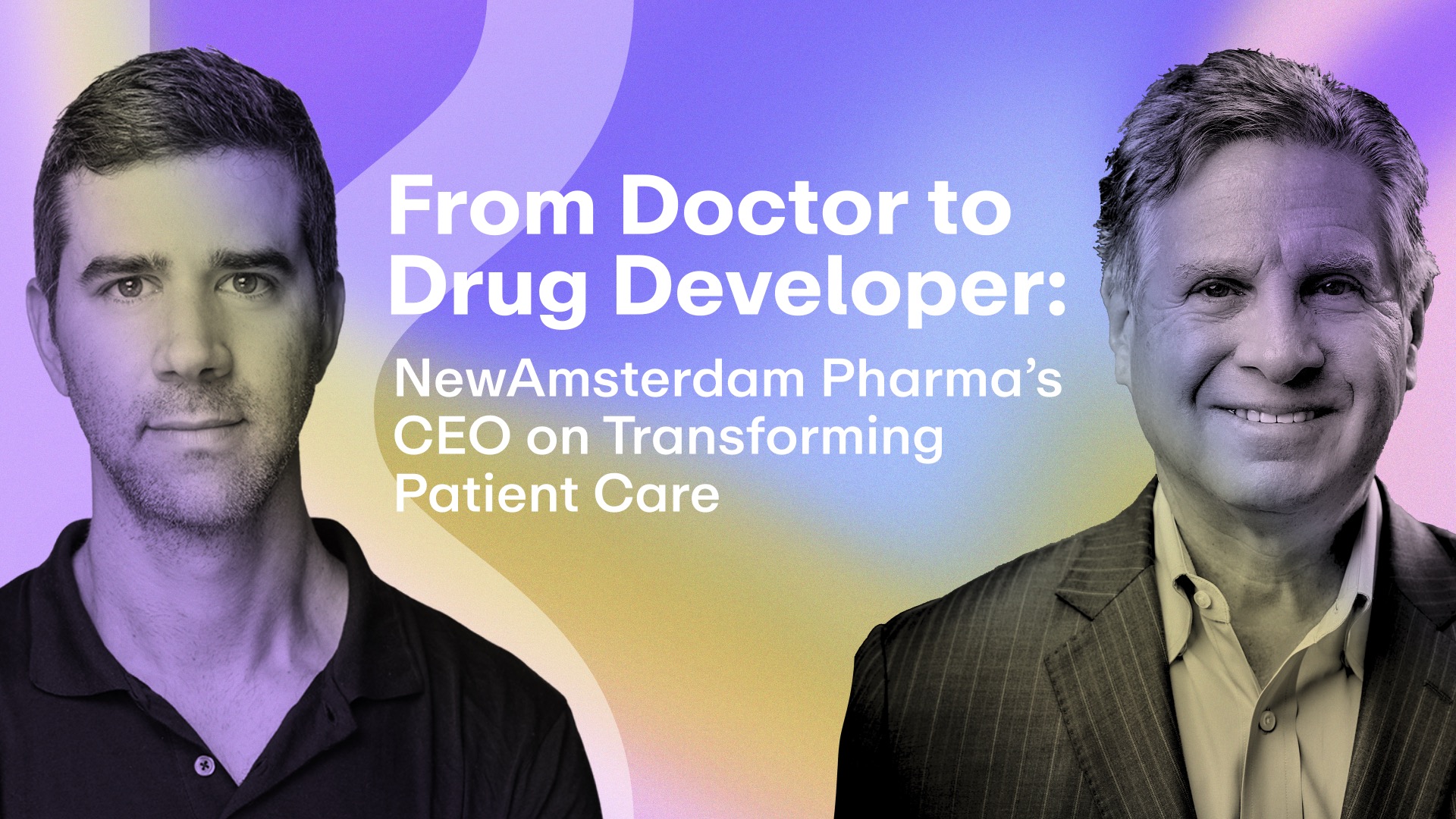When Dr. Michael Davidson was a teenager, his father died of a heart attack at the young age of 47. That early loss informed everything that followed: He decided at that moment to become a cardiologist and devote his life to helping others avoid his father’s fate.
Davidson accomplished this – and then some. He’s a board-certified physician in internal medicine, cardiology and clinical lipidology. Prior to joining NewAmsterdam Pharma in 2020, he co-founded and served as chief medical officer at both Corvidia Therapeutics and Omthera Pharmaceuticals. He also founded the Chicago Center for Clinical Research, one of the country’s largest investigator sites.
In this interview with Kinara co-editor Dr. Chase Feiger, Davidson discusses the importance of preventive care in cardiology. He also shares how he balances his work as a life-sciences entrepreneur with his ongoing care of patients in need.
(This Q&A has been lightly edited for length and clarity. To listen to the full Kinara podcast with Dr. Michael Davidson, click here.)
Chase Feiger: You’ve had an incredible journey from clinical medicine to entrepreneurship, and built multiple companies along the way. What inspired you to make that transition? What challenges did you face early on?
Michael Davidson: Obviously the biggest thing for me in my life was my father dying at age 47 of a heart attack. I had an uncle who was a very prominent family doctor, so my hope was to go into family medicine. And after this tragedy, I decided I wanted to be a cardiologist and focus on prevention – because he had no warning signs, nothing that would indicate risk of heart disease other than a family history.
Starting in medical school, I did research – a lot of work on omega-3 fatty acids – and I started the Chicago Center for Clinical Research. I wouldn’t say I got bored, but I got to the point where I had done so many trials and had become really involved in consulting and working with companies, giving them advice. I really wanted to move to the other side and start developing my own therapies. It’s been a great journey and fortunately I had successful exits along the way.
Feiger: How have those experiences shaped your leadership style at NewAmsterdam?
Davidson: At my first company, I was the chief medical officer because I didn’t really think I had enough CEO experience. At my next company, I felt I was ready to be CEO and we did really well; we got our funding through series B. Then our backers said, “We really want a business guy to bring the company public.” I was disappointed but I understood, so I took a step down to chief medical officer and we were acquired by Novo Nordisk before we had the IPO.
It all worked out well for everybody, but it was a time for me to reflect on my strengths and weaknesses. I felt I had great experience with clinical trials and patient outcomes and care and designing studies, and I learned a lot about the business side of things, especially managing people. On personality testing I come out different from typical CEOs: I’m not an extrovert, not the high-energy kind of guy. I’m more of a compassionate leader, and I think people connect with that. They know that I’m loyal and dedicated and compassionate, and those characteristics get people to follow you.
Feiger: I want to dive deeper into the impact that you’ve had as a leader taking a dual role as both CEO and physician. I think that gives you a very unique understanding of what’s happening from a hands-on perspective; you’re seeing all aspects of the healthcare value chain. What is it like balancing the two roles? How does your clinical experience inform the way you lead New Amsterdam day-to-day?
Davidson: It’s not always easy. I see patients four days a month, so that’s approximately one busy, busy day a week. I’m so much more fatigued after a patient day than any other day as CEO. It’s a significant time commitment, but I love it.
Helping patients has helped a lot on a number of levels for being CEO of New Amsterdam. First of all, we’re developing a cholesterol drug, so having that experience and being in the trenches – the insurance, reimbursement issues, patients’ concerns about side effects and safety – are very important strategically for the company. It really makes a difference in how we strategically prepare for our clinical trials and for our commercial launches.
Feiger: As cardiovascular care evolves, how do you think the role of the physician will change? Do you see more doctors taking on leadership roles in biopharma, as you have?
Davidson: I kind of feel like an old man now in the biotech world, but the background that I had serves me well as a biotech executive. I don’t think most doctors are even aware of that path in their first decades of being a doctor. I like being a role model to show doctors that there is another path beyond taking care of patients, which is fantastic.
Like I said, I had this investor who thought doctors may not be the best executives or whatever. I think that’s changing now, too. A lot of doctors are becoming very good executives, and a lot of them have the right training and background to do that.
Feiger: I’ve seen a number of different cardiovascular drugs struggle to get to market due to factors like time and scale required for clinical trials. How has NewAmsterdam navigated some of that complexity?
Davidson: There’s a good reason why there aren’t that many cardiovascular biotech companies: It does take a lot of capital and time because you have to do the long cardiovascular outcome trials. It takes a lot to get to the finish line.
I feel very proud of one decision we made and I was grateful that our investors went along with it. We decided in 2022 that we were going to go forward. We had maybe $100 million in the bank – which sounds like a lot of money – but we started our two large Phase 3 LDL trials and our 9,500-patient cardiovascular outcome study at the same time, knowing we did not have enough money to finish the trials. I promised our board that we would figure out how to get the money along the way, and we were able to do that successfully.
We took a gamble and it paid off, but biotech is not for the faint of heart. The lesson learned is you have to be bold, you have to be patient and you have to have investors with a long-term view of the company.
Feiger: Where do you see the biggest opportunities in cardiovascular drug development over the next decade?
Davidson: My hope is that we move to more of a prevention mode for the population instead of waiting until people have heart disease and then treat them more aggressively, that we do start treating people much earlier in life.
We have the tools available, or soon to be available, that can really wipe out heart disease. Now it’s a matter of whether we have the will to give the researchers the tools to get these drugs into the hands of patients sooner than later, as opposed to having to invest so much capital and time into doing these big cardiovascular outcome trials.




